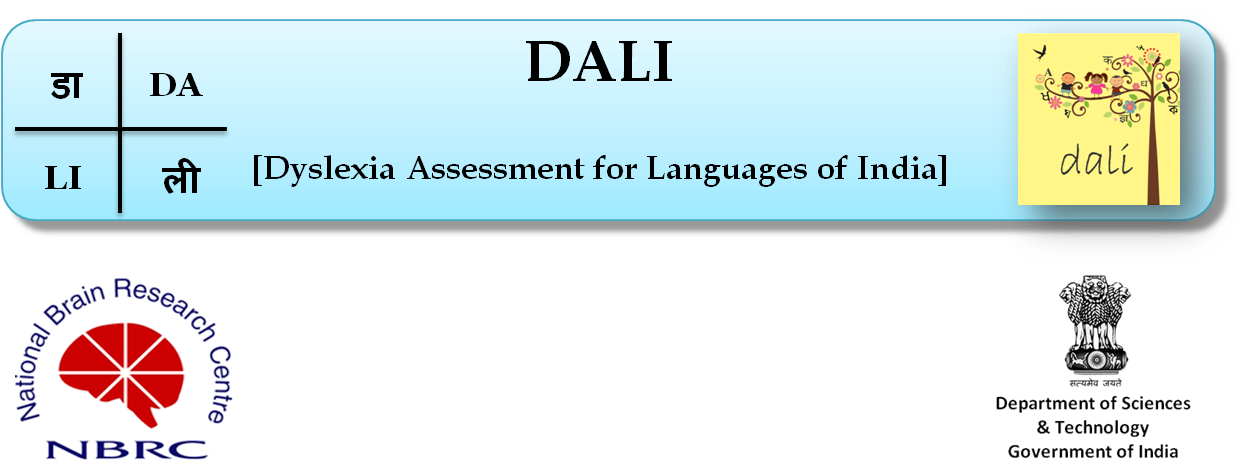
Worldwide statistics suggest that approximately 1 in 6 children cannot read or is a different learner who needs to be taught differently. The inability to achieve adequate reading skills despite normal intelligence, equal opportunity and adequate classroom instruction is termed as Dyslexia. Dyslexia has a biological basis and occurs because of differences in brain wiring. The incidence of dyslexia in India is believed to be 10-15% which brings our count of dyslexic Indian children to nearly 35 million.
DALI is the first screening and assessment tool for dyslexia in regional Indian languages. It contains screening tools for school teachers and assessment tools for psychologists in four Indian Languages (Hindi, Marathi, Kannada and English) to identify dyslexia. DALI was developed at the National Brain research Centre under the leadership of (Principal Investigator) Prof. Nandini Chatterjee Singh and her team under the aegis of a project supported by the Department of Science and Technology, Government of India.
DALI contains two screening tools for dyslexia (for school teachers) namely the JST(Junior Screening Tool) for classes (1-2) and the MST (Middle Screening Tool) for classes (3-5) in four languages, Hindi, Marathi, Kannada and English. It also contains eight standardized and validated assessment Batteries to be used by psychologists. It also contains suggestions for remedial intervention for areas lacking in children.
